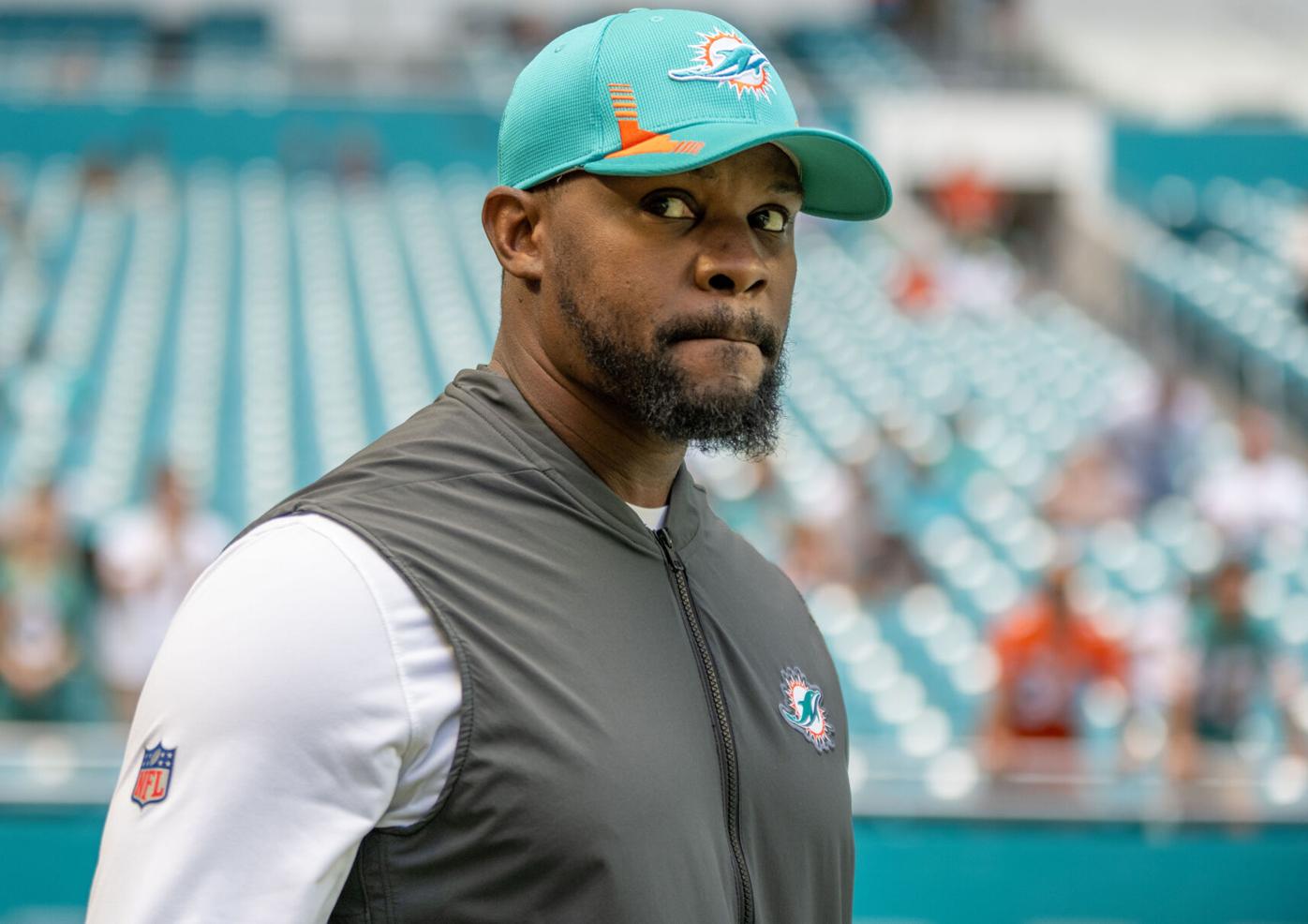By: Edwin Duodu
Brian Flores’s lawsuit against the NFL for alleged racial discrimination in the hiring process of coaches isn’t an outlier with how the league deals with these types of issues. Flores, weeks after being fired from the Miami Dolphins, was supposed to be one of the hottest commodities for teams in need of a new coach. Not only would he provide that, but he would instill a winning philosophy and an overall shift in how players are disciplined.
Since these coach-needy teams have conducted their interviews and made their hires, none of those hires included Flores. In fact, no employment consists of a black coach, period. The most important lesson that comes from the actions of Flores emphasizes that minority coaches are expected to be qualified three times as much, compared to their counterparts, even to be considered for senior positions.
Let’s take a look at the Rooney Rule, introduced in 2003. The NFL created the rule to increase the number of minorities hired in senior and high positions. At that point, the league made history. However, history also indicates that the rule still had little to no effect on hiring minority coaches within the past 19 years.
The phrase “results business” only seems to have a more significant impact on black head coaches in the past. Currently, there is one black head coach in the NFL, a position held by Mike Tomlin of the Pittsburgh Steelers. One coach out of 32 teams is a disgrace. It’s the reason why men such as Kliff Kingsbury can still interview for a head coaching position in the NFL after having three losing seasons previously.
It’s why qualified candidates such as Eric Bieniemy, Byron Leftwich, Todd Bowles, and Brian Flores struggle to really be considered for jobs. Notice the word “considered,” a term that NFL team owners and presidents misconstrue with the verb “interview.” The Rooney Rule obligates them to interview minorities without serious consideration, thus excusing them of backlash in the future. The rule was created to appease the masses instead of actually helping minorities in senior job searches. Flores’ claims regarding Dolphins owner Stephen Ross also point to a cycle that the league covertly intends to uphold.
In his lawsuit, Flores claimed that Ross offered to pay $100,000 for each loss during the 2019 season, insinuating that he wanted a higher draft pick. Of course, Flores refused this proposal, which eventually led to his recent firing after providing the teams with back-to-back winning seasons. By the way, the Dolphins have only three winning seasons in the past 12 years, and Flores owns two of those.
Referring back to the firing, although Flores may be seen as a great coach, his record may have shown otherwise if he agreed to Rosse’s terms. Once fired, NFL teams in need of a new coach have the leverage to use minorities’ coaching records against them, being that this is a “results business.” Thus it adds to this neverending cycle of minority coaches not being “qualified” in the eyes of a team owner and making the hiring decisions easier to make. That also coincides with what success looks like for most NFL executives, and the idea of success doesn’t resemble that of a black man.
Say what you want about the NFL, but you can’t deny the extensive history of racism that continues to plague coaches in a league where 70% of the players are African American. There will never be anything different until the NFL opens up its door towards change and erases the presumption that minorities are seldom qualified to own important positions in the league. Until then, its door will remain closed.


 NFL
NFL





